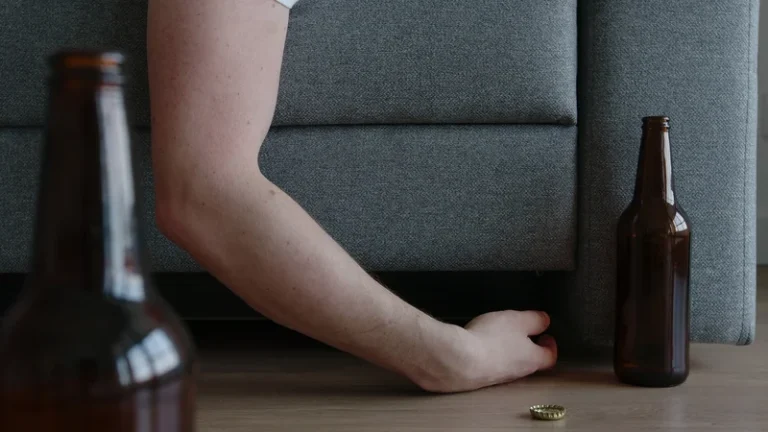
This article explains the safety and effects of drinking alcohol while using blood thinners. In acute pain, blood pressure elevations are quickly returned to normal. On the other hand, when chronic pain occurs, there are continuous elevations that weaken the body’s ability to normalize blood pressure. This can lead to more pain, hypertension, and the risk of heart disease. Not all medicines that prevent blood clots are suitable for everyone.
How much alcohol can you safely drink while taking Xarelto?

Blood-clotting in the circulatory system is referred to as thrombosis. Even minor injuries, such as scratches, can damage blood vessels and cause bleeding. To control excessive bleeding and ensure an injury does not become life-threatening, the blood clots.
Ask the Expert: Common Questions About Alcohol and Blood Thinners
The above review noted that low to moderate alcohol consumption can decrease platelet activation and aggregation, meaning it may reduce blood clotting in a similar way to blood thinning medications. Research suggests drinking alcohol may thin the blood by affecting platelets, which are the parts of blood that initiate coagulation, or clotting. The long-term health risks of drinking include liver and heart disease, a weakened immune system and several types of cancer. Studies have also shown that drinking large quantities of alcohol in one sitting or even a single drink a day can raise blood pressure. The only way to eliminate the risks of combining alcohol and blood thinners is to avoid alcohol completely.
- The amount of alcohol a person consumes daily contributes to how it affects blood and heart health.
- A live vaccine contains live but weakened pieces of the virus or bacterium it’s meant to defend against.
- Regardless of the type of blood thinner being used, you should generally avoid alcohol while taking a blood-thinning medication.
- They may be able to advise you on how often and how much alcohol you can consume safely.
- The next time you think about drinking alcohol while taking Xarelto, make sure you’re aware of the potential consequences and side effects.
Does Alcohol Thin Your Blood? Risks of Alcohol and Blood Thinners
Talk to your doctor if you think you might use recreational drugs while taking apixaban. Before you have them, be sure to show your anticoagulant alert card to the nurse or doctor. It’s important to tell them that you’re taking apixaban, in case there’s any bleeding at the site of the injection.
Excessive alcohol consumption can contribute to strained relationships with family and friends. It may lead to social isolation and difficulties in maintaining employment or fulfilling responsibilities. American Addiction Centers (AAC) is committed to delivering original, truthful, accurate, unbiased, and medically drinking alcohol on blood thinners current information. We strive to create content that is clear, concise, and easy to understand. When you don’t take enough, the medication won’t be as effective. People who said they drink a lot of liquor also tended to binge drink, which counteracts any helpful effects you might get from alcohol in moderation.
$5 aspirin is as good as a $300 injection. Why are people still getting injected?
Perhaps the most common myth about the benefits of alcohol is the idea that an occasional glass of red wine boosts heart health. Injecting while taking apixaban will increase your risk of bleeding. Unsurprisingly, the main side effect of blood thinners is bleeding. People who take blood thinners will notice that a cut or nick takes longer to stop bleeding and that they bruise more easily. But serious bleeding, such as bleeding in the gastrointestinal tract or brain, can occur.
Types and Common Blood Thinners
Cannabis (often called marijuana) and cannabis products, such as cannabidiol (CBD), have not been specifically reported to interact with Revlimid. However, as with any drug or supplement, talk with your doctor before using cannabis in combination with Revlimid. The impact of cannabis may affect how well you stick to your Revlimid treatment plan. There aren’t any known interactions between Revlimid and alcohol. However, your doctor may advise you to avoid or limit alcohol consumption during Revlimid treatment.
Alcohol, or ethanol, is a substance that is found in beer, wine, and liquor. Clinical studies have shown that alcohol can also thin the blood by reducing levels of fibrinogen, another protein involved with blood clotting. One study found that high levels of alcohol consumption, or around two to three drinks per day, reduced fibrinogen levels by 14%. Since blood thinners are designed to thin the blood and alcohol has that same effect, drinking alcohol while on blood thinners should be avoided to prevent excessive thinning. That said, some studies have found that low to moderate consumption of alcohol is generally safe for people on blood thinners.

Drug interactions in depth
- Before taking Eliquis, talk to your healthcare provider about all of your medical conditions and medical history to make sure Eliquis is safe for you.
- The Recovery Village Ridgefield is a premier addiction treatment center in Ridgefield, Washington, that offers detox, inpatient and outpatient programs for alcohol use disorders.
- It is important for patients to be closely monitored and to follow their healthcare provider’s instructions to minimize potential side effects, such as bleeding complications.
- Most people do not need to change their apixaban dose, but your dentist may contact your doctor for advice before starting the dental treatment.
These medications work by binding to proteins that are involved in either the coagulation cascade or to proteins on platelet surfaces. Alcohol and many other blood thinners are processed by the liver. Drinking alcohol while on blood thinners can strain the liver, potentially affecting its ability to metabolize medications effectively. This may result in unpredictable variations in drug levels in the body. Both alcohol and blood thinners independently contribute to blood thinning. When combined, they can amplify this effect, heightening the risk of bleeding.




